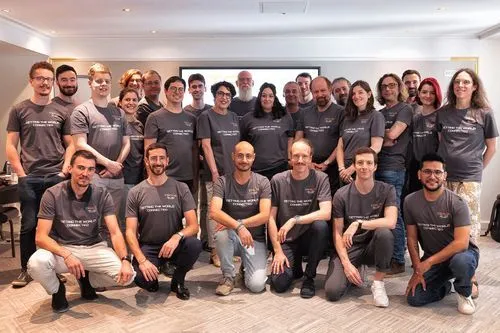What Is Remote Desktop? How IT Teams Actually Use It to Operate and Support RDS at Scale
What is Remote Desktop in real RDS environments? Learn how IT teams use RDP daily to operate, secure and monitor Remote Desktop Services at scale.
Would you like to see the site in a different language?
RDS TOOLS BLOG
From then to now, what is RDS? Re-discover RDS and how it works before discovering our RDS Tool-kit.
)
Microsoft Remote Desktop Services (RDS) enables remote access to desktops and applications over a network connection. It works off a process initially known as Terminal Services, RDS has evolved to become a cornerstone and inspiration of remote connection and remote work, allowing centralised management and enhanced security for IT environments. From then to now, what is RDS? Re-discover RDS and how it works before checking out how RDS-Tools add that essential little something to your RDS infrastructure.
RDS began as Terminal Services in Windows NT 4.0 Terminal Server Edition, offering basic remote access capabilities. Over the years, it has transformed significantly, with the rebranding to Remote Desktop Services in Windows Server 2008 R2 marking a pivotal point. This evolution is a testimony to the growing need for remote access solutions in an increasingly digital world.
RDS operates by hosting files, desktops and applications on one or more centralised servers from where everything is run. Users can then access the server(s) through the Remote Desktop Protocol (RDP). This setup allows IT departments and service providers to manage resources efficiently. Additionally, it provides users with seamless access to their work environments from any location with internet connectivity.
1. Remote Desktop Session Host (RDSH)
The RDSH server facilitates multiple user sessions on a single server, enabling access to individual desktops and applications, hence the word host.
2. Remote Desktop Gateway (RDG)
RDG servers secure access to RDS resources from outside the corporate network by tunnelling RDP sessions over HTTPS. The RDG appropriately authorises or refuses outside access to resources.
3. Remote Desktop Connection Broker (RD Connection Broker)
The RD Connection Broker manages user sessions, distributing them across multiple servers and maintaining session persistence. Ensuring that users reconnect to their existing sessions without data loss is a large part of the connection broker’s purpose.
4. Remote Desktop Web Access (RDWA)
RDWA provides web-based access to RDS resources through a web browser, allowing users to connect through any web browser without needing a dedicated RDP client. As a function, RDWA provides essential flexibility and ease of access.
5. Remote Desktop Licensing (RD Licensing)
This component manages the licenses required for client connections to the RDS environment, ensuring compliance with Microsoft’s licensing policies.
RDS enables session-based virtualisation and VDI (Virtual Desktop Infrastructure). Multiple users are able to share a single server environment meaning session-based virtualisation is cost-effective. In contrast, VDI provides a dedicated virtual machine per user, prioritising performance and ensuring application compatibility.
RDS can be deployed in various environments:
On-Premises: Traditional deployment within a company’s own data centre.
- Cloud: Utilises cloud services like Microsoft Azure to host RDS environments.
- Hybrid: Combines on-premises and cloud deployments for greater flexibility and scalability.
Effective monitoring is crucial for maintaining the health and performance of RDS environments. Monitoring tools track server performance, network traffic and user activity, helping IT professionals identify and resolve issues promptly. Essential features such as load balancing and reporting are among the essentials in this field. Here are our top four.
- Remote Desktop Services Manager: Manages active sessions and provides server and user information.
Event Viewer: Logs system events, errors and warnings for troubleshooting.
Performance Monitor: Tracks various performance metrics like CPU and memory usage.
Task Manager: Offers real-time data on processes and resource usage.
RDS-Tools provides user-friendly professional solutions for monitoring and securing RDS environments. These skilfully designed tools offer detailed performance metrics, enhanced security features and streamlined management capabilities, supporting IT professionals in maintaining robust and efficient RDS infrastructures. Our highlight is the customisation of reports to keep brand coherence and adapt presentation to departments and audiences who will read the reports.
RDS can face scalability challenges, especially in environments with growing user numbers. Effective load balancing and resource management are essential to maintaining performance and avoiding bottlenecks.
Managing licenses for RDS can be complex due to Microsoft’s detailed licensing requirements. Tools that automate license tracking and compliance can simplify this process.
RDS environments are susceptible to security threats, necessitating robust security measures like multi-factor authentication (MFA), encryption and regular patching. RDS-Tools’ Advanced Security software and surrounding solutions help mitigate these risks by providing comprehensive surveillance, support and protection for remote access infrastructures.
Remote Desktop Services (RDS) is a versatile and powerful solution for providing remote access and centralised management of desktops and applications. Its evolution from Terminal Services to its current form underscores its importance in modern IT environments. For IT professionals seeking to enhance their RDS deployments, RDS-Tools offers sleek monitoring and robust security as well as the capacity to provide maintenance and assistance infrastructure-wide. How better to ensure secure, efficient and scalable RDS remote access.
For those looking to optimise their RDS environments with enhanced security and monitoring capabilities, explore the comprehensive range of tools offered by RDS-Tools. Visit our website to learn more about our products and how they can meet your IT infrastructure needs.
Simple, Robust and Affordable Remote Access Solutions for IT professionals.
The Ultimate Toolbox to better Serve your Microsoft RDS Clients.
 Get in touch
Get in touch
